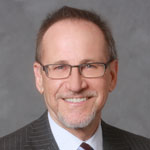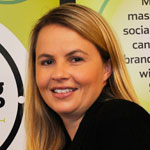There were goats bleating in the background as Christine Simmons stumbled through a conversation with a young Haitian girl. Simmons had taken French for a few years in school, and suddenly it came rushing back, the two of them laughing like girlfriends against the backdrop of a country beset by poverty. The experience was like a personification of the spirit of the place, and it inspired Simmons. Despite its poverty and its disasters, Haiti is a land of proud, entrepreneurial people who find ways to thrive.
Simmons is not a member of the Red Cross, nor is she a diplomat—at least officially. She’s the director of supplier diversity for NBCUniversal, but is not bound by her desk or even the borders of the United States. From 9 a.m. to 5 p.m., she advocates for diverse suppliers in the entertainment industry. When she takes off her corporate hat, she puts on that of an ambassador. Over the holidays, she cannot shake the desire to continue making a difference, so she joins her sister-in-law on the earthquake-ravaged island of Haiti and hand-delivers food, medical aid, and toys to kids like Wendolyn, who remind her of the potential of one act of empowerment.
“It’s almost like I was born into this,” says Simmons, whose family is a multicultural tapestry. Growing up in Rancho Cucamonga, California, people sometimes looked twice when they saw Simmons’s white mother carting around four biracial children, but Simmons never shied away from the attention. Even as a child, she possessed a social awareness that would serve her in all endeavors, both personal and professional.
Simmons took the stage as Coretta Scott King in the Miss Rancho Cucamonga competition in high school, using the opportunity to encourage a dialogue in her community to further the conversation about diversity. “People had questions, so I said let’s talk,” she recalls. “I think being able to communicate, to feel comfortable in different environments, and to help others around me feel comfortable helped break down barriers and allowed me to find my way as an ambassador.”

As a California teen, Simmons came of age as the Los Angeles riots unfolded in the aftermath of the Rodney King beating. She worked in her father’s warehouse to earn money for college and watched as he struggled, like many African-American business owners, to navigate the opportunities of the corporate world. In a very primitive, highly criticized effort, the city of Los Angeles attempted to remedy this and broader racial problems through the Rebuild L.A. nonprofit.
“That was one of the early efforts of what I’m doing with supplier diversity today,” Simmons says. “But it started as a very quota-based approach, and opportunities were carved out for diverse businesses.” Simmons recognized that her first-hand experiences were meaningful and could be impactful, but she had yet to discover how best to use them as a force for change. “That’s what diversity is,” she says of the varied experiences we all bring to the proverbial table. “The challenge was to translate it.”
At UCLA, Simmons admits she did “more community organizing and empowering” than a premed student should, but it was through this work that she developed the passion and skills she uses each day at NBCUniversal. Simmons’s work revealed to her that, despite their independent nuances, communities of color face many of the same challenges, and it allowed her and other concerned activists to come together and talk about solving them. Whether it was setting up hypertension screenings in the Crenshaw District, leading a program to make sure diverse students graduated on campus, or mentoring at-risk youth in South L.A., Simmons says she “discovered that empowering can manifest into a variety of careers, and [that] I could make a living out of it—in health care or elsewhere.”
Just as she recognized the value of diverse experiences, after graduating with a degree in physiological sciences, Simmons versed herself in the practices on both the corporate and supplier side of business before coming to NBCUniversal.
“Now that I sit in this chair on the corporate side, and diverse suppliers are knocking on our door, I can say I’ve been on [their] side,” she says. “This is how you should prepare, and if you need assistance, go to this fantastic organization over here because they can provide you with x, y, and z.”
Drawing on her past as well as present, Simmons was able to refine the message that alluded her as a teen, spreading it for the benefit of those without a voice. “My father didn’t have someone to call for help navigating the RFP process,” she remembers. “In essence, now I’m that person.”
Simmons advocates for many diverse businesses. For each, she waits for the phone call that brings the news of one landing a bid. “You get warm and fuzzy,” she says. “But at the same time, you know there’s a business case for everything we do.” That’s why the reward for her work is two-fold. Not only do the businesses that Simmons counsels benefit, but so do the communities in which they provide jobs. “I didn’t set out in this path,” Simmons says. “I fell into it. But it’s such a natural fit that when I look back, retrospectively, I know I was meant to be here.”
With perspective like that, it’s no wonder Simmons chooses to spend her holidays at St. Michel’s, the school in Haiti where she contributes to the relief effort. Simmons recalls filling the LCD frame of her digital camera first with the dirt floors and broken-down wooden benches of a classroom, then with the faces of a group of Haitian boys with fascination in their eyes. Not knowing the ubiquity of photo-snapping electronics, they were amazed at the phenomenon of seeing their images seconds after being photographed. “We had this little ad hoc photo shoot,” Simmons remembers. “It’s those little moments that stand out.”
Despite the gratification her work brings, and the great strides yet to made by diverse suppliers in the entertainment industry, Simmons is hopeful for the day when diversity is a standard practice, not an initiative to be pushed. For now, there is much to do. “When people think supplier diversity, they often don’t think of the entertainment industry,” she says. “But we’re trying to get the message out that diversity is important to us.”
While NBCUniversal looks to lead the industry in its outreach, for Simmons, the end goal is all-or-nothing: “I look forward to the day when I work myself out of a job.”

